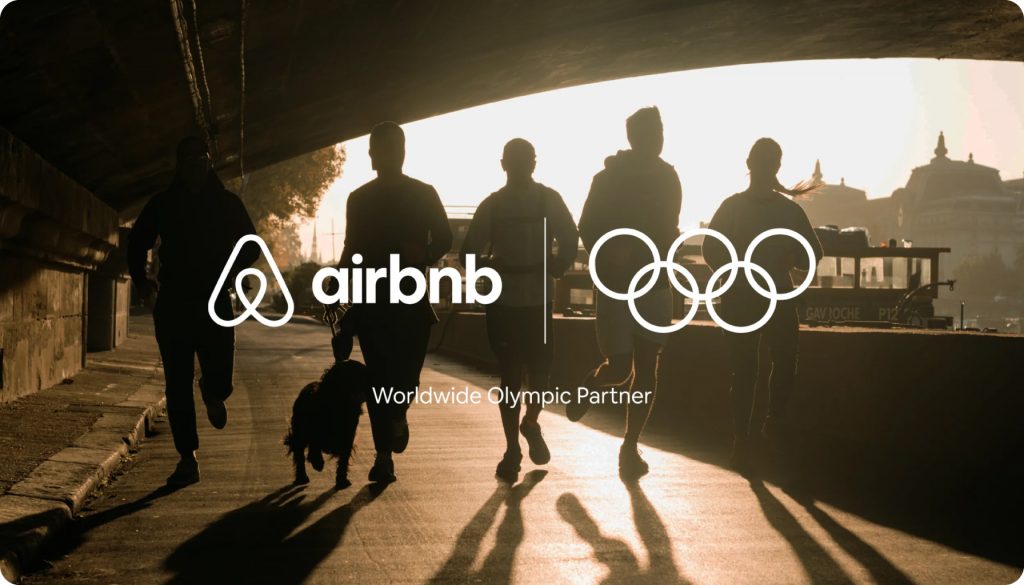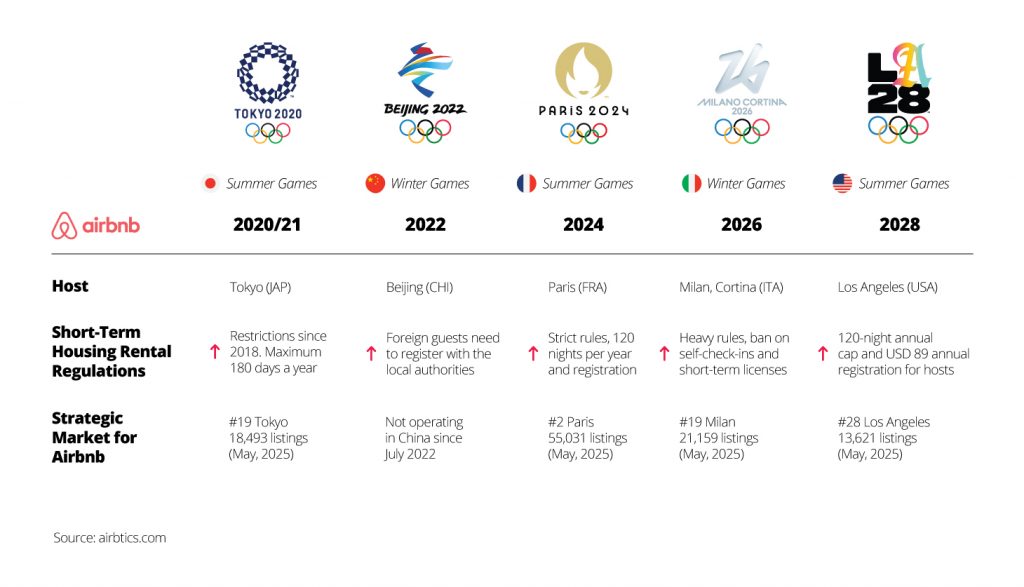
Sponsorships are marketing solutions to business problems.
We often see brands seeking visibility, engagement, data, prestige, relationships, or product sales.
That’s not Airbnb’s case — at least not the main goal here.
By investing millions in an Olympic sponsorship, they might have saved billions by delaying potential local restrictions on short-term rentals.
According to sponsorship expert Ricardo Fort, this might be one of the highest ROIs in sponsorship history.
After Airbnb’s huge success — reaching 4 million hosts who have welcomed over 1.5 billion guests worldwide — many cities started imposing limits on the company’s operations.
Hotel occupancy, city taxes, and long-term housing availability have been increasingly affected by Airbnb’s growth.
As more cities started to announce stricter regulations on short-term rentals, Airbnb saw in the Olympic agenda an opportunity to build closer, more flexible relationships with city governments — who are naturally inclined to collaborate with major event sponsors to maximize the impact on their cities.

The Olympic timeline seems perfectly aligned with Airbnb’s regulatory challenges in key markets.
Based on Fort’s numbers, the estimated annual fee for a TOP Olympic Partner is about USD 100 million per year. Considering Airbnb was still operating in China at the time, the five host cities could represent around 5% of the company’s annual earnings — roughly USD 400 million.
In this scenario, a USD 500 million sponsorship could have protected over USD 2 billion in revenue.
Coincidentally, Airbnb’s operation in China was closed just a few months after the Beijing 2022 Winter Games.
Of course, Airbnb also activates the sponsorship in more traditional ways — like the recent promotion offering an exclusive experience with NFL star Patrick Mahomes, or the previous Olympics campaign featuring stays in iconic locations like the Musée d’Orsay in Paris.
But when the goal is influencing governments to protect your core business, the value goes far beyond traditional marketing metrics.
It’s not the kind of sponsorship we learn in marketing books. But it’s the kind of move that can define the future of a company.
Receive my weekly post